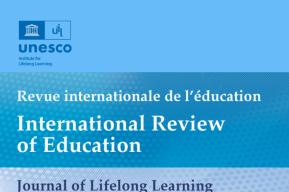News
UNESCO co-organizes international seminar focusing on the revitalization of indigenous languages

Two master classes and panels of national and international experiences are part of the "International Seminar on Intercultural Policies for Multilingualism in Comparative Perspective" on Wednesday, November 16 and Thursday, November 17. The inaugural session on November 16 was attended by the representative of the UNESCO Office in Chile, Claudia Uribe; the resident coordinator of the United Nations System in Chile, María José Torres Macho; the Minister of Cultures, Arts and Heritage, Julieta Brodsky; the Minister of Education, Marco Antonio Ávila; the socio-cultural coordinator of the Presidency, Irina Karamanos and the interim executive director of the La Moneda Cultural Center, Pablo Brugnoli.
"The latest UN data say that seven thousand languages are spoken on the planet, of which 6,500 are indigenous languages, and unfortunately, 2,500 of them are at risk of disappearing. And every time this happens, a worldview, a way of naming the world, a culture, an identity disappears. In this sense, we are pleased with Chile's commitment to recover, revitalize and promote indigenous languages in the country and from the United Nations we express our commitment to work hand in hand to advance along this path," added the director of the UNESCO Office in Chile, Claudia Uribe.
The resident coordinator of the United Nations System in Chile, María José Torres Macho, highlighted three reasons why it is important to address these issues: "because every two weeks we lose a living language on the planet, and that a country like Chile is reaffirming the importance of maintaining them is key. Secondly, because multiculturalism towards the issue of languages is part of a culture of integration and peace; and thirdly, because it is a driving force for development".
"This is a space where we will be able to learn about comparative experiences of practices, policies and programs that promote multilingualism and revitalize indigenous languages in more than ten countries. In addition to the activities that are part of this Week of Multilingualism, we are inaugurating the Decade of the World's Indigenous Languages, an invitation from the UN to focus public policies on the plight of these languages, many of which are being lost on a daily basis. It is undoubtedly a tremendous challenge for our country and that is why we are addressing it in a cross-cutting and inter-ministerial manner", said the Minister of Cultures, Julieta Brodsky Hernández.
Along the same lines, Minister Marco Antonio Ávila stated that "it seems fundamental to us that each portfolio can develop affirmative actions that allow us not only to revitalize but also to generate new speakers of the indigenous languages of our country. In the case of the Ministry of Education, we have been implementing curricular bases for several years, which we hope can be extended to secondary education, and why not also advance in bilingual projects, especially in those areas where there is a greater concentration of indigenous families, students and communities".
The Seminar will be attended by specialists and formulators of public policies on multilingualism from Chile and the world. In this space, significant practices will be presented from which lessons learned for the Chilean case can be extracted. The inaugural day included the performance "Ckuri, limpiadores de pueblos", by the company La Huella Teatro.
The event's program includes master classes by Francisco Cali Tzay, UN Special Rapporteur on the Rights of Indigenous Peoples, and Daiara Hori Figueroa Sampaio, artist, activist, educator and communicator from Brazil.
The seminar continues this Thursday, November 17, from 9:00 a.m. to 2:00 p.m., in the Film Room on Level 2 of the La Moneda Cultural Center. Admission is free upon ticket reservation at https://www.cclm.cl/actividades/politica-intercultural-para-el-plurilinguismo-en-perspectiva-comparada/. Seating is limited. The event will also be broadcasted on UNESCO Santiago's Youtube channel at www.youtube.com/unescosantiago




